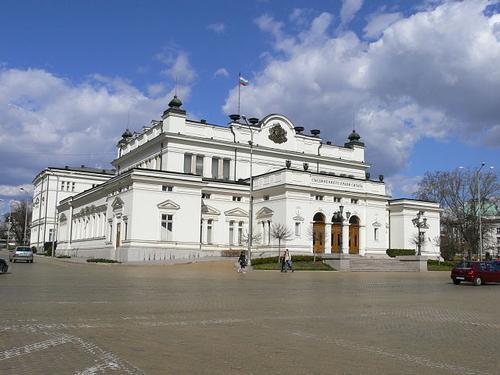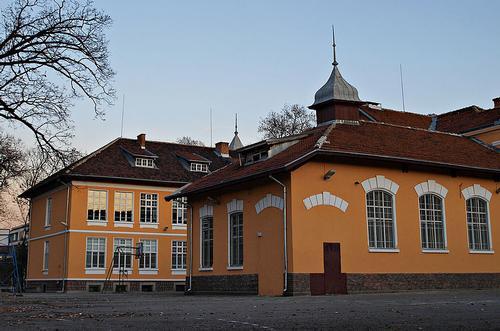BULGARIA
Society

Society

Cities in BULGARIA
| Sofia |
Society
State structure
 Parliament building of BulgariaPhoto: Nenko Lazarov CC 2.5 no changes made
Parliament building of BulgariaPhoto: Nenko Lazarov CC 2.5 no changes made
Bulgaria became a People's Republic on September 15, 1946 and was the last Eastern European country to transition to a democratic constitution in 1991.
The Narodno Sobranje, the National Assembly of 240 deputies, is the highest legislative power according to the revised 1991 constitution. The Narodno Sobranje is elected every four years by all Bulgarians aged 18 and over through direct elections. There is no obligation to vote. For very drastic matters such as constitutional changes, a Grand National Assembly of 400 representatives is elected by a combination of the proportional and majority voting systems.
The President is the Head of State and Commander in Chief of the Armed Forces and, together with the Deputy Prime Minister, is elected for a five-year term in direct universal suffrage under the proportional electoral system. The president can only be re-elected once. With the right of veto, he can block or postpone legislative proposals from the Sobranje. He also appoints, after consultation with parliament, the prime minister, who comes from the largest party in parliament. A presidential candidate must be at least 40 years old and have lived in Bulgaria for the last five years.
In the new 1991 constitution, the reference to the leading role of the communist party was omitted and a multiparty system was introduced. A mixed economy was also allowed, as well as different forms of ownership. Articles restricting freedom of expression were dropped. An accompanying electoral law created the conditions for free and democratic elections. The Council of Ministers was fully accountable to the Sobranje.
Bulgaria is divided into 278 districts and nine provinces. Districts are administered by the mayor and the district council and have their own budget. Provinces are administrative units administered by governors appointed by the council of ministers. The nine provinces or oblasti are Burgas, Grad Sofiya, Khaskovo, Lovech, Montana, Plovdiv, Ruse, Sofia and Varna. Bulgaria is a member of the United Nations and some of its sub-organizations, an associate member of the European Union, the North Atlantic Cooperation Council and the Council of Europe. Between 1955 and 1991, Bulgaria was a member of the Warsaw Pact and the Comecon. For the current political situation, see chapter history.
Education

For a long time tuition was free and regulated by the state. In recent years, however, tuition fees have to be paid to state universities. There is a compulsory education for children from six to sixteen years old. The first private schools were not opened until 1991. Scientific education can be taken at the Universities of Sofia (since 1889), Plovdiv, Veliko Turnovo and Varna and at fourteen regional schools. An American University is located in Blagoevgrad.
In 1997 there were 3,889 schools, more than 110,000 educators and teachers and more than 1.4 million pupils and students. Due to cutbacks, many good teachers have left for the business world.
Turkish lessons are only allowed in certain regions, but optional and outside the regular curriculum.
Sources
Berg, H. van den / Reis-handboek voor Bulgarije
Elmar
Detrez, R. / Bulgarije: mensen, politiek, economie, cultuur, milieu
Koninklijk Instituut voor de Tropen
Resnick, A. / Bulgaria
Childrens Press
CIA - World Factbook
BBC - Country Profiles
Copyright: Team The World of Info